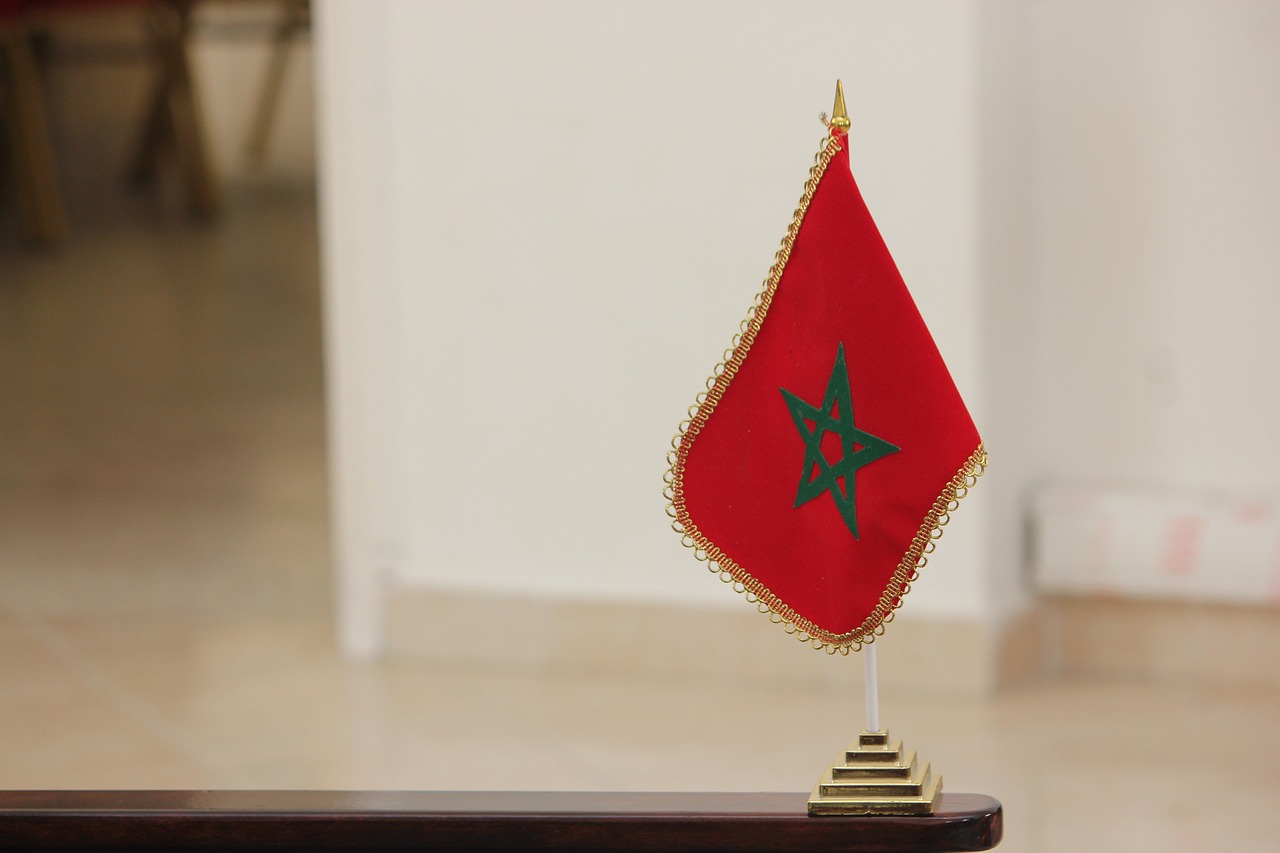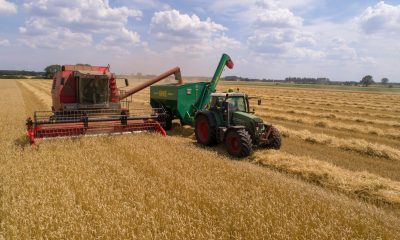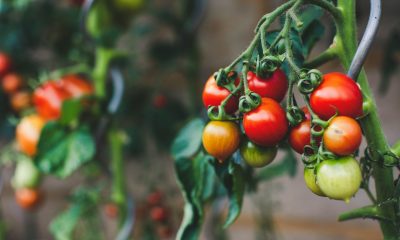Africa
Morocco at the Heart of the Deployment of the African Agenda in Agriculture
Morocco is poised to lead the African agricultural agenda over the next two years, spearheading initiatives like the “Triple A” program and coordinating policies with the FAO. Despite facing water stress due to drought, Moroccan-led efforts aim to promote resilient, modern, and sustainable agriculture across the continent, although financing remains a significant challenge.

Over the next two years, Morocco will be at the heart of the deployment of the African agenda in the agricultural sector. In addition to its pioneering role in the “Triple A” initiative, the Kingdom will play a leading role in policy coordination with the FAO.
Agriculture places Morocco at the heart of major African issues. Two major events have just been held in turn in the Kingdom, namely the 33rd FAO Regional Conference for Africa, in Rabat, followed by the 16th edition of the International Agricultural Show in Morocco (SIAM ), in Meknes. The high mass of Moroccan agriculture, which constitutes one of the largest agricultural fairs on the continent, is an opportunity to take stock of the evolution of the initiative launched by Morocco in 2016, namely the “ Triple A.
This initiative on the Adaptation of African Agriculture (AAA) thus brought together, during SIAM, the fourth ministerial meeting. An important meeting, marked by the declaration of African officials in charge of agriculture to continue in the process of achieving the “Triple A”.
Resilience of Morocco
This Ministerial Declaration comes in a very timely context, at a time when water stress is rife in a large part of the continent’s countries, starting with Morocco, which is experiencing its sixth successive year of drought. It is therefore quite natural that the ministerial meeting affirmed the “common ambition and [the] shared vision for the future of African agriculture in the face of the climate challenge”.
The objective is to promote “modern, sustainable and efficient agriculture, which feeds populations, creates jobs, preserves natural resources and contributes to the prosperity of the continent.”
But this obviously requires providing the resources necessary for the resilience and development of this agriculture. “We have been talking about this for almost a decade, but the observation is that in many African countries, agricultural development strategies are struggling to achieve their objectives. And this is due to poor implementation of policies, or even unforeseen events caused by climate change, not to mention the lack of funding.”
Underfinancing
Moreover, speaking of this financing, the Minister of Agriculture, Mohammed Sadiki, recalled, during the ministerial meeting in Meknes, that “the pressing need for robust adaptation strategies has never been “also glaring, at a time when funding to support these efforts remains insufficient.”
According to the minister, Africa needs around $580 billion for adaptation measures between 2020 and 2030, with a particular focus on agriculture. It should just be noted that the actual adaptation funding received by the continent was only $11.4 billion per year in 2019 and 2020, well below the projected $52.7 billion annually needed for 2030. Suffice it to say that there is still a way to go, unless African countries seek other means of financial autonomy.
FAO point of view
This question of financing will certainly arise over the next two years. A period during which Morocco will be at the heart of FAO’s actions on the continent. This is one of the conclusions to be drawn from the 33rd FAO Regional Conference for Africa, which was held in Rabat from April 18 to 20. During this event, the FAO once again considered that Morocco was an example to follow in the development of the agricultural sector in Africa.
Qu Dongyu
DG of the Food and Agriculture Organization of the United Nations (FAO)
“The strategies adopted by Morocco over the last twenty years can constitute an example to follow for different African countries. FAO intends to develop its partnership with the Kingdom in a way that will benefit other African countries.
Mohammed Sadiki
Minister of Agriculture
“The pressing need for robust adaptation strategies has never been greater, at a time when funding to support these efforts remains insufficient. Africa needs around $580 billion for adaptation measures between 2020 and 2030, with a particular focus on agriculture.
__
(Featured image by mokhtarakel1 via Pixabay)
DISCLAIMER: This article was written by a third party contributor and does not reflect the opinion of Born2Invest, its management, staff or its associates. Please review our disclaimer for more information.
This article may include forward-looking statements. These forward-looking statements generally are identified by the words “believe,” “project,” “estimate,” “become,” “plan,” “will,” and similar expressions. These forward-looking statements involve known and unknown risks as well as uncertainties, including those discussed in the following cautionary statements and elsewhere in this article and on this site. Although the Company may believe that its expectations are based on reasonable assumptions, the actual results that the Company may achieve may differ materially from any forward-looking statements, which reflect the opinions of the management of the Company only as of the date hereof. Additionally, please make sure to read these important disclosures.
First published in LES ECO.ma. A third-party contributor translated and adapted the article from the original. In case of discrepancy, the original will prevail.
Although we made reasonable efforts to provide accurate translations, some parts may be incorrect. Born2Invest assumes no responsibility for errors, omissions or ambiguities in the translations provided on this website. Any person or entity relying on translated content does so at their own risk. Born2Invest is not responsible for losses caused by such reliance on the accuracy or reliability of translated information. If you wish to report an error or inaccuracy in the translation, we encourage you to contact us

-

 Biotech2 weeks ago
Biotech2 weeks agoEcnoglutide Shows Promise as Next-Generation Obesity Treatment
-

 Business15 hours ago
Business15 hours agoThe TopRanked.io Weekly Digest: What’s Hot in Affiliate Marketing [uMobix Affiliate Program Review]
-

 Business1 week ago
Business1 week agoThe TopRanked.io Weekly Digest: What’s Hot in Affiliate Marketing [PureVPN Affiliates Review]
-

 Crowdfunding3 days ago
Crowdfunding3 days agoPMG Empowers Italian SMEs with Performance Marketing and Investor-Friendly Crowdfunding
























